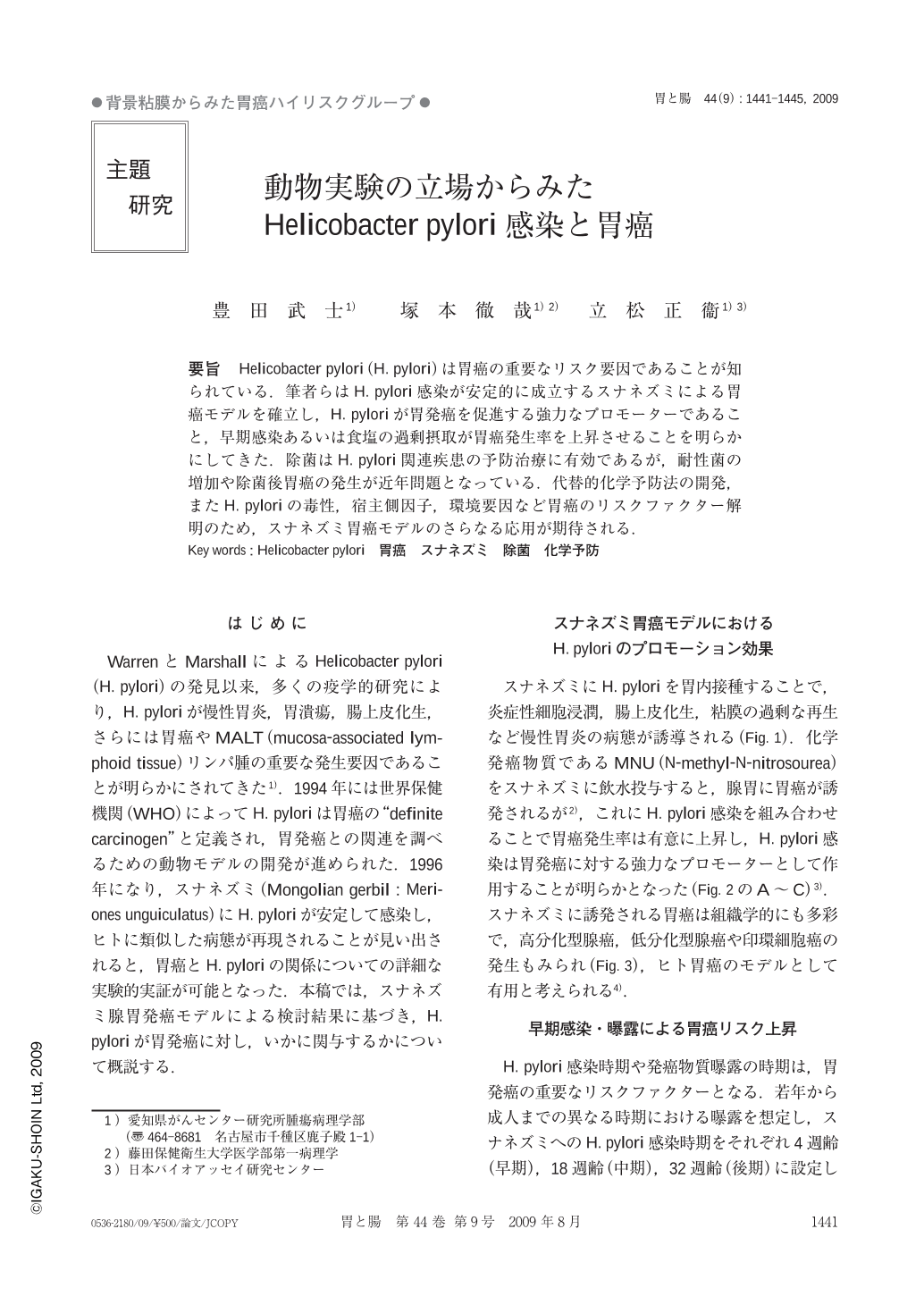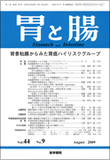Japanese
English
- 有料閲覧
- Abstract 文献概要
- 1ページ目 Look Inside
- 参考文献 Reference
要旨 Helicobacter pylori(H. pylori)は胃癌の重要なリスク要因であることが知られている.筆者らはH. pylori感染が安定的に成立するスナネズミによる胃癌モデルを確立し,H. pyloriが胃発癌を促進する強力なプロモーターであること,早期感染あるいは食塩の過剰摂取が胃癌発生率を上昇させることを明らかにしてきた.除菌はH. pylori関連疾患の予防治療に有効であるが,耐性菌の増加や除菌後胃癌の発生が近年問題となっている.代替的化学予防法の開発,またH. pyloriの毒性,宿主側因子,環境要因など胃癌のリスクファクター解明のため,スナネズミ胃癌モデルのさらなる応用が期待される.
Helicobacter pylori is well known as a significant risk factor for stomach cancer. We have established the H. pylori-infected and carcinogen-treated Mongolian gerbil as an appropriate animal model for investigation of gastric carcinogenesis, and demonstrated H. pylori to be a potent promoter of stomach cancer development. We have also reported that early acquisition of H. pylori and excessive salt intake up-regulate the incidence of stomach adenocarcinomas in the gerbil model. Although eradication therapy is generally recommended as the major preventive method for gastric disorders, recent studies have revealed the increasing prevalence of antimicrobial-resistant strains and progression of atrophic gastritis to adenocarcinoma even after eradication. Further investigation using the Mongolian gerbil model is expected to develop alternative chemopreventive methods such as cyclooxygenase-2 inhibitor and to clarify the relationship of bacterial virulence, host genetic factor, and environment.

Copyright © 2009, Igaku-Shoin Ltd. All rights reserved.


